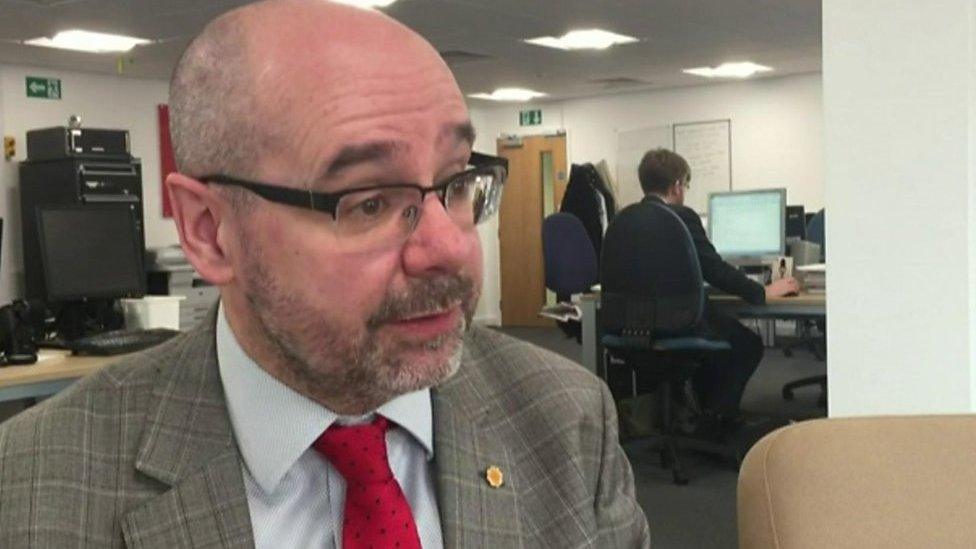Natural Resources Wales' timber deal pulled over saw line
- Published
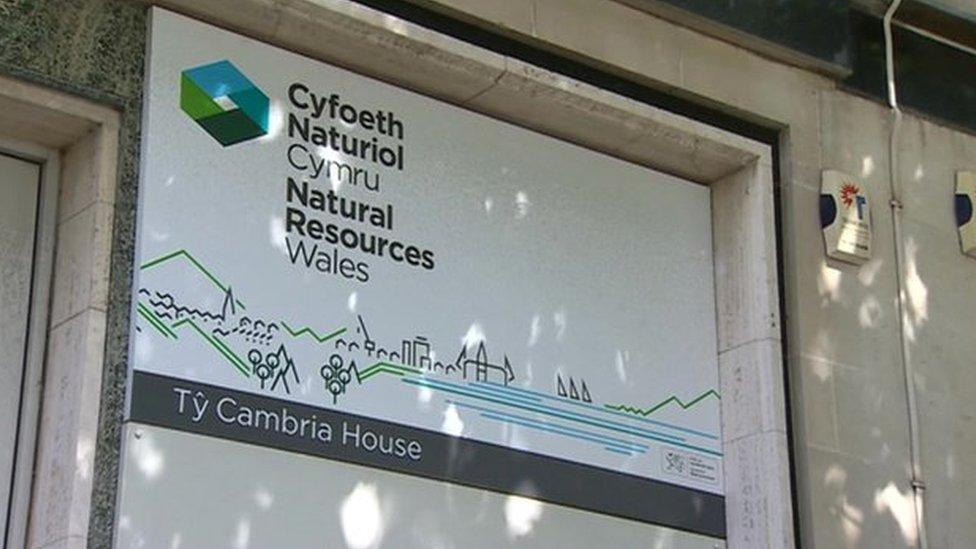
Natural Resources Wales is funded by the Welsh Government, but is run at arms length
A company that was given a £39m deal to buy timber from Natural Resources Wales - which no other firm was allowed to bid for - has failed to meet a key part of the agreement.
The unnamed saw mill firm had promised to build a new production line for cutting timber.
But the body said the company had not met a deadline to do this by March.
The 10-year deal which was criticised by auditors will now end as a result, it told BBC Wales.
Nick Ramsay, chairman of public accounts committee, said it was "very concerned" by the latest developments.
Auditor General for Wales, Huw Vaughan Thomas, had dubbed the transactions related to the deals for larch and spruce timber "irregular" when he qualified the organisation's accounts in a report that emerged in March.
He said the decision-making process was not transparent and expressed "doubt" over whether it met EU state aid rules.
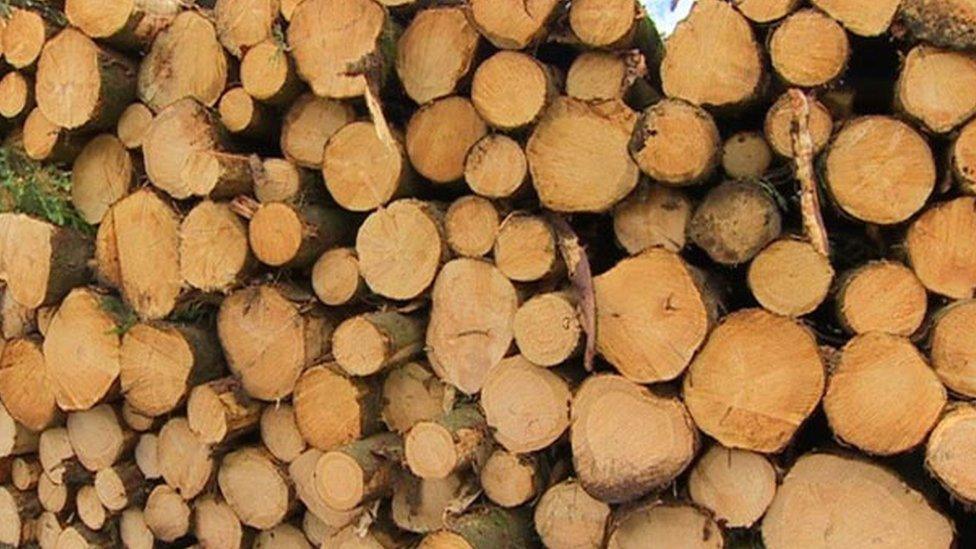
Around 700,000 cubic meters of timber has been supplied to the firm since 1 April 2014.
As a condition of the contracts, given as part of an effort to deal with diseased larch, the company said it would construct and operate a new saw line by 31 March 2016.
That was missed, and despite the deadline being extended to last Friday, no saw line has been built.
Natural Resources Wales (NRW) told BBC Wales that it was in discussion with the operator about the next steps. It declined to name the contractor.
A spokesman for the Wales Audit Office (WAO) said that one of the "key reasons" NRW entered into the contracts was to create new capacity in the timber industry with a new saw line.
"If sufficient capacity has been achieved without the construction of a new saw line, it does raise further questions about the decision to award the contract to the saw mill operator," the WAO spokesman said.
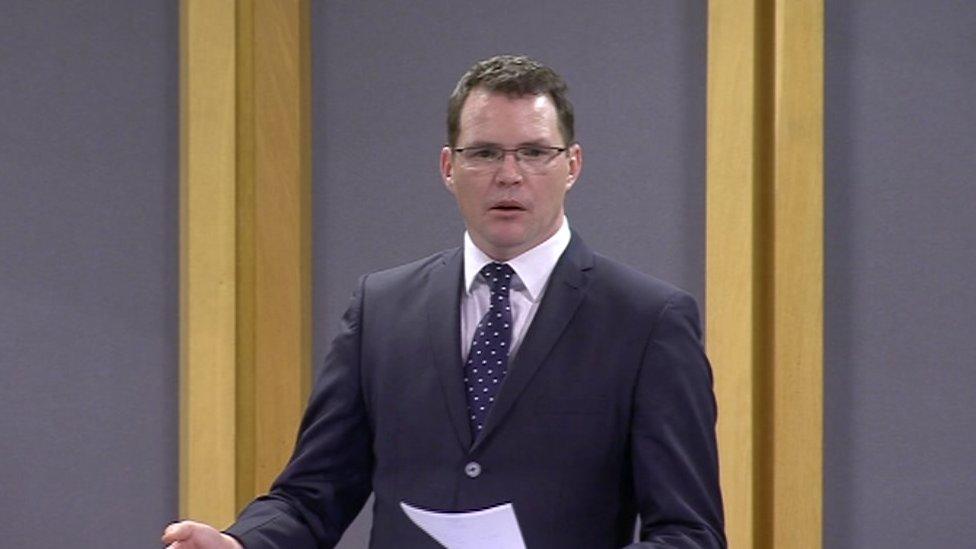
Lee Waters said there were questions for the NRW board to answer
Llanelli Labour AM Lee Waters, who is a member of the assembly public accounts committee, said the fact NRW has confirmed that the saw mill plan has not happened "draws into question NRW's judgement, and undermines the whole reason for taking this very unusual step in the first place".
Conservative economy spokesman Russell George said the revelation was "extremely damaging" for the organisation.
The assembly's public accounts committee heard from NRW chief executive Emyr Roberts in March, who told AMs that the deal was a "success".
Mr Ramsay said the committee was "not convinced by some of the answers given" by NRW at the previous meeting.
He said the public accounts committee was "very concerned at the latest developments around Natural Resources Wales and its awarding of timber contracts highlighted by the Auditor General for Wales".
"We intend to question NRW closely again next month about its approach to both the awarding of the contracts and of the wider timber market in Wales," he added.
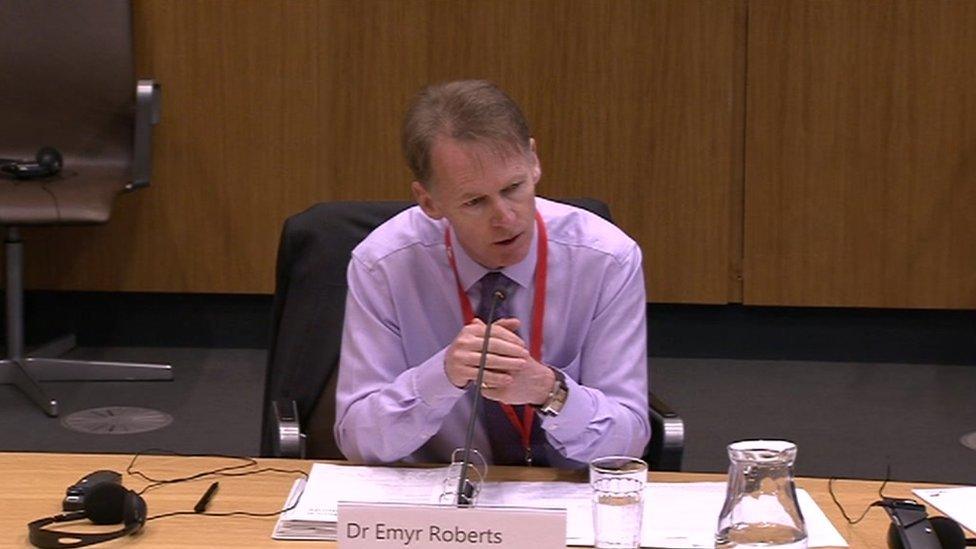
Emyr Roberts has said NRW's approach to dealing with diseased larch was successful
A NRW spokeswoman said: "The prime objective of NRW at the time was to secure a market for the diseased larch."
The spokeswoman denied that NRW's judgement had been drawn into question or that its reasoning for awarding the contracts had been undermined by the failure to open the saw mill line.
"There was insufficient harvesting and processing capacity in Wales at the time and NRW was unable to sell all the infected timber it needed to market," she said.
"The investments identified in the contract were to create the processing capacity for additional private sector larch that was expected to reach the market in addition to NRW's infected timber.
"The company has made investments at the plant and has kept pace with the volumes from NRW managed forests."
She said if larch disease had spread as previously predicted, the additional capacity would have played an important role.
She said the forest industry will be told about how the remaining volume of timber will be offered for sale.
A Welsh Government spokesman said it was disappointed the NRW accounts were qualified and was working with NRW to address the issues raised.
- Published28 March 2017

- Published15 March 2017
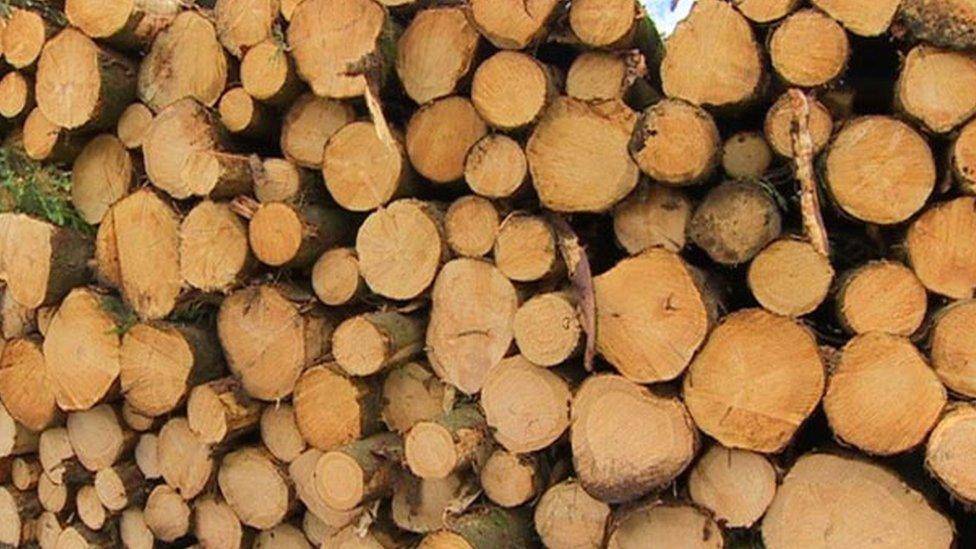
- Published15 March 2017
